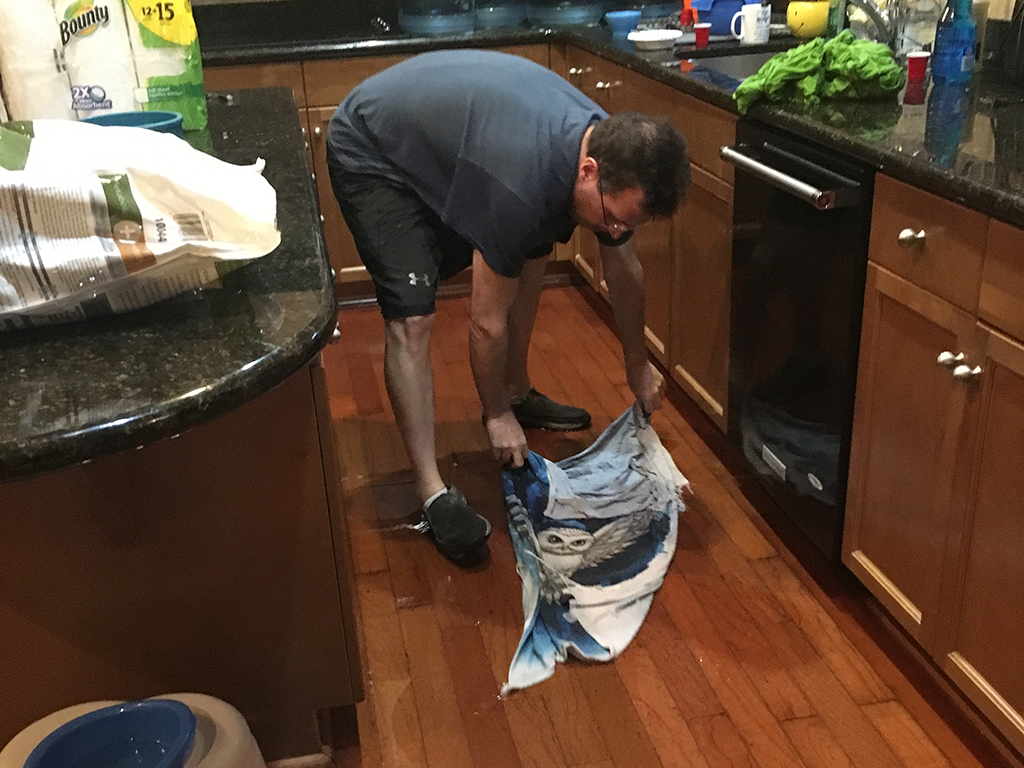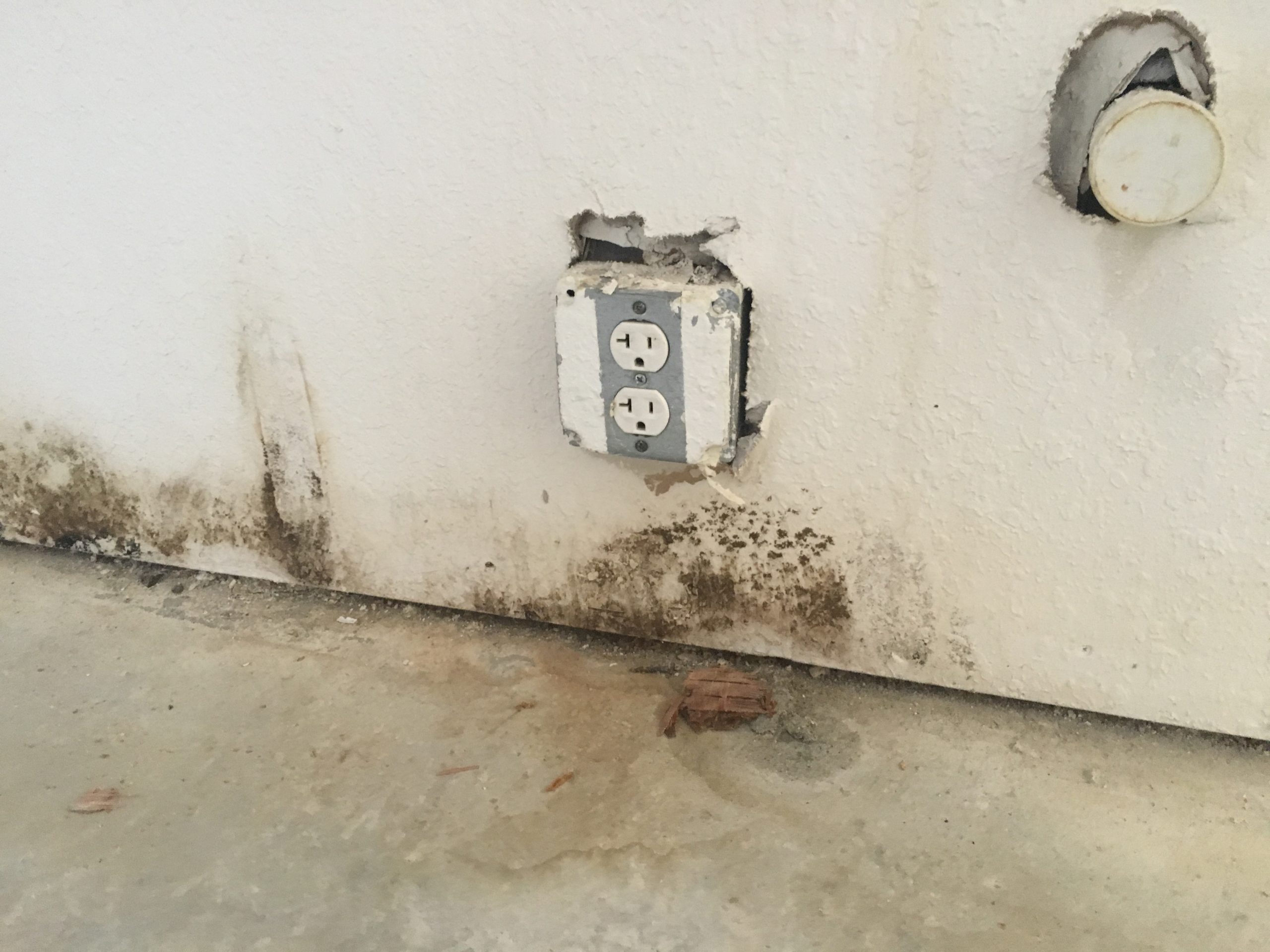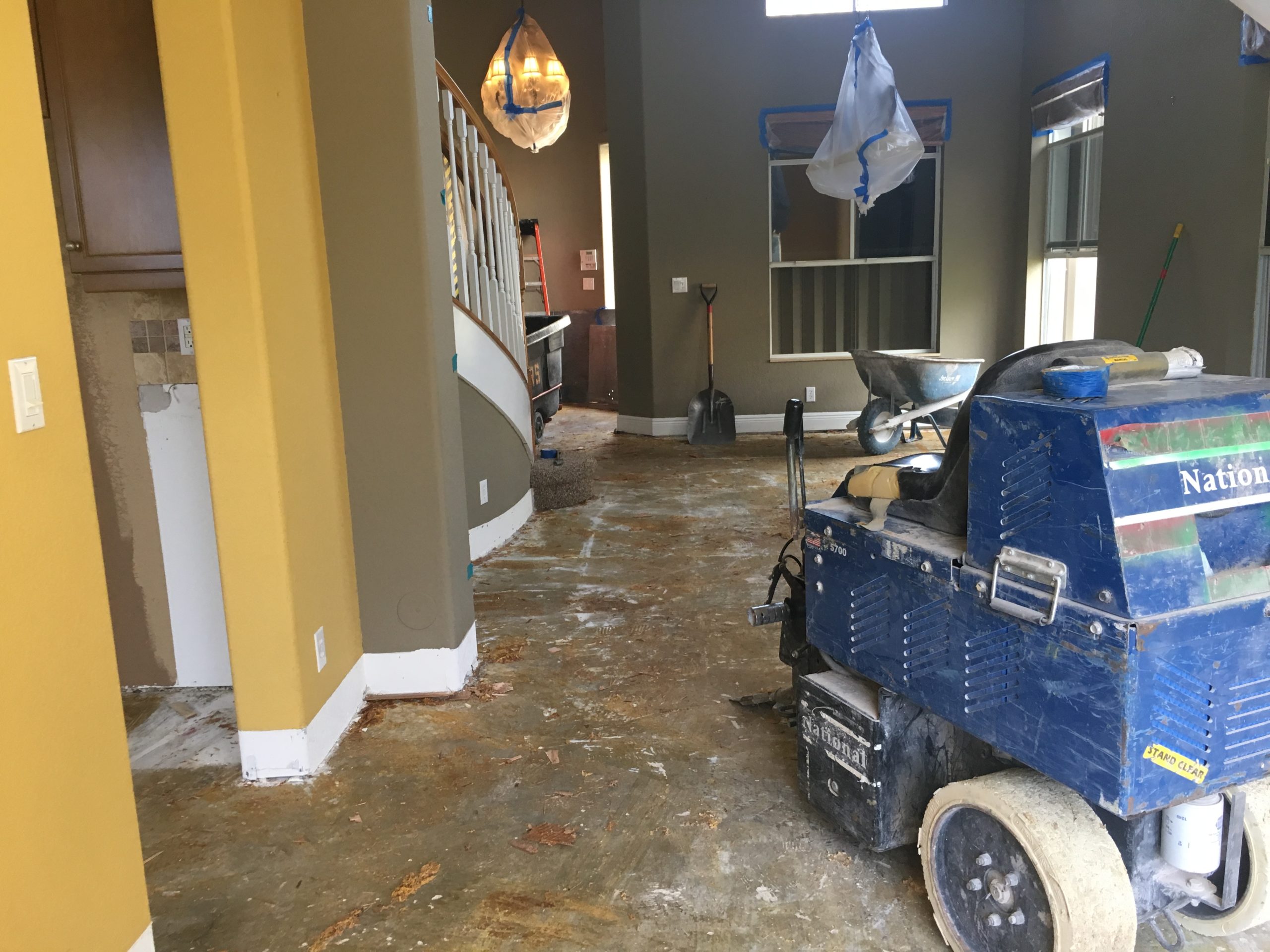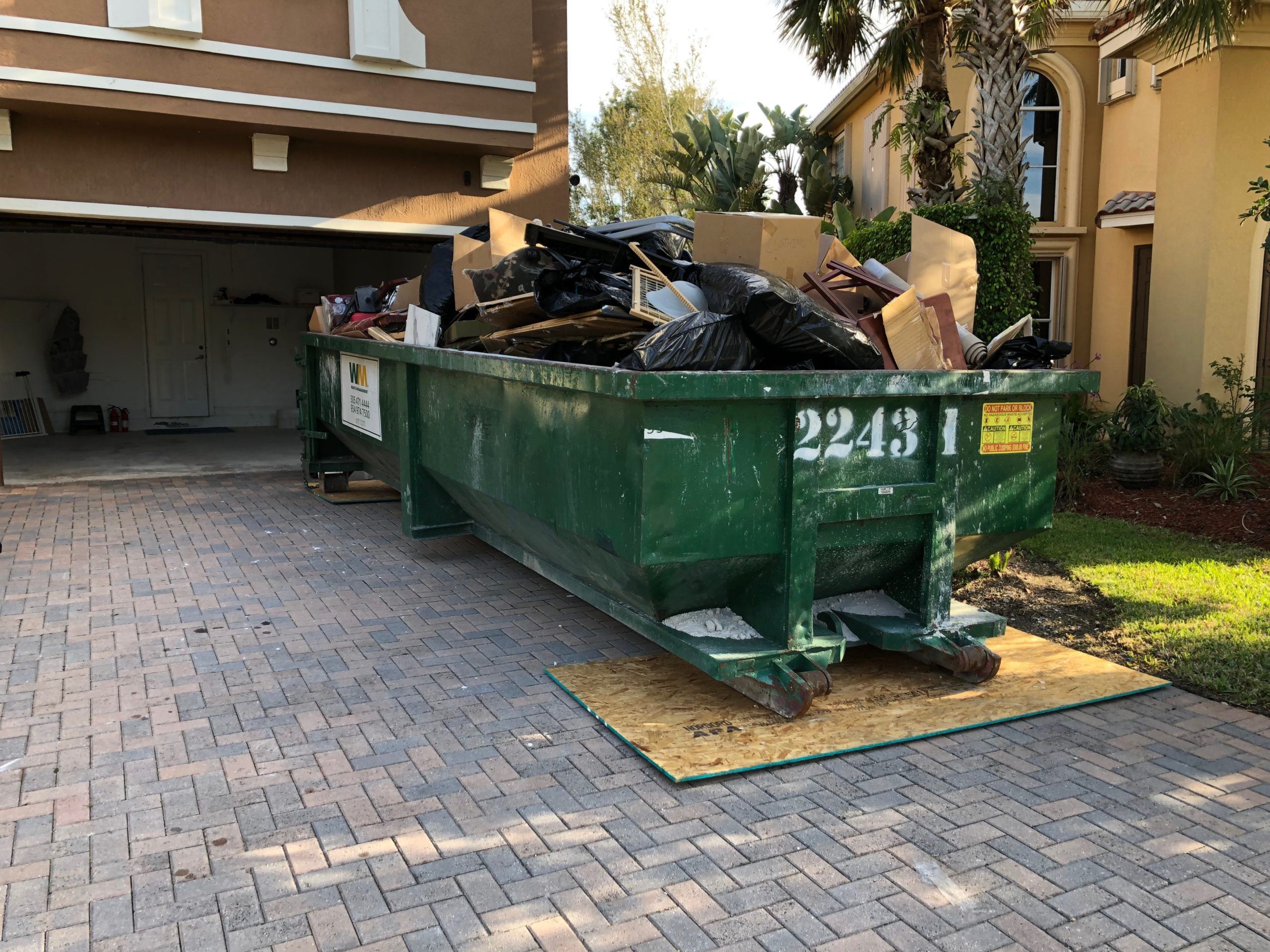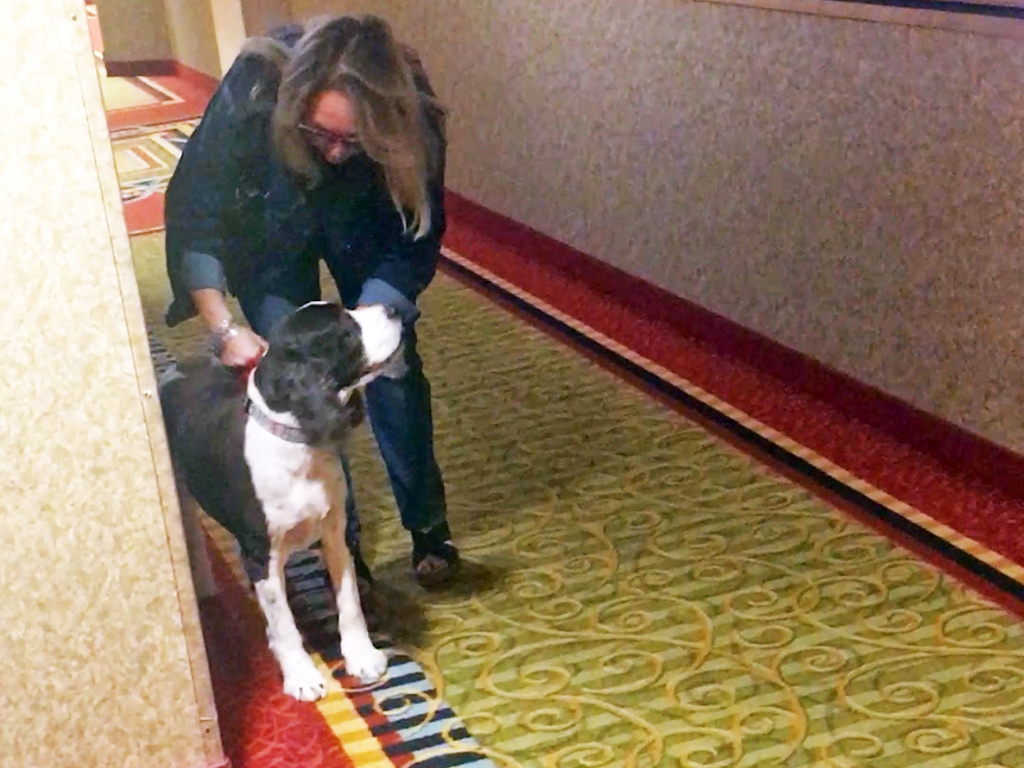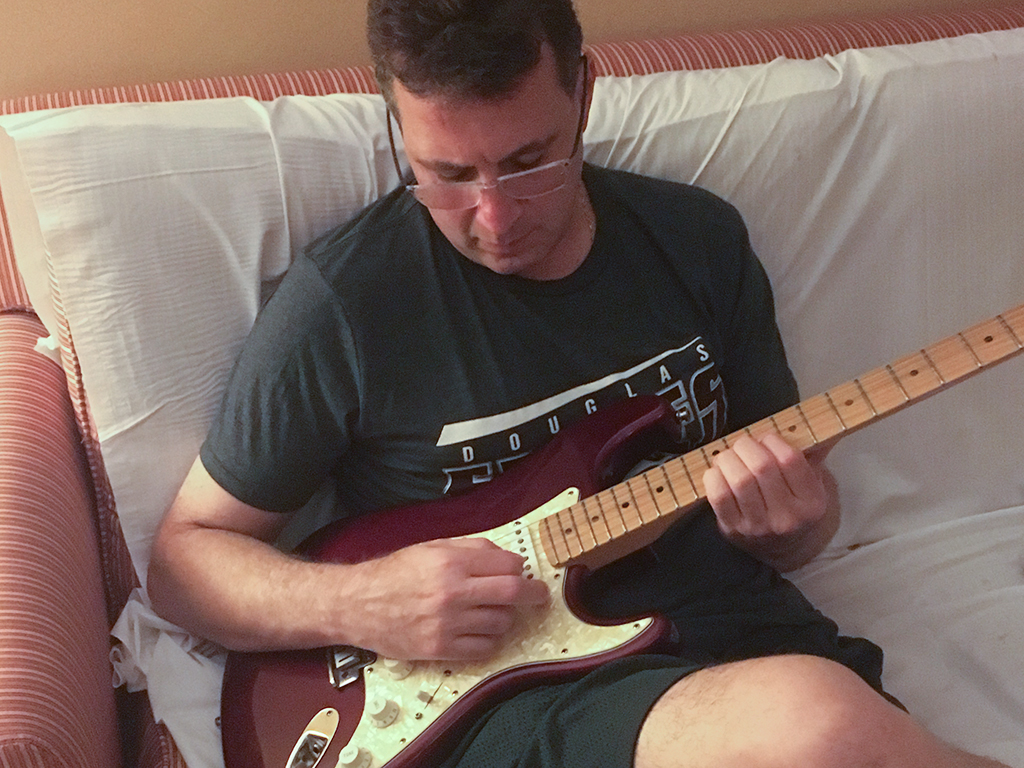By Selene Raj
As elections near, politics can become even more intense and personal. Such is the case in the mayoral race for Parkland—wherein one resident has accused a candidate of using her position for inappropriate personal gain — even accusing the Broward County Property Appraiser’s office special favors.
The subject of the accusations is Parkland City Commissioner Stacy Kagan, who is running against fellow Commissioner Rich Walker.
On Friday, a resident named David Mejia (David Meijas on Facebook) penned a lengthy post in several Facebook groups about Kagan’s alleged wrongdoings.
“I understand most people are tired of politics,” he wrote, “but this information should be a very serious concern to the taxpayers, property owners, and voters of Parkland.”
He clarified that the issue at hand was not political, but a critical matter of city-wide importance—accusing Kagan of lying about having damage to her home, then using her political connections to defraud her insurance company and lower her property taxes.
Using data from the National Water Service, he shared that Parkland sustained maximum winds of 48 mph to 82 mph and that most homes were only minimally impacted by Hurricane Irma, which happened in September of 2017.
He joined a Heron Bay Homeowners group to inquire about how much damage others sustained in the area, under the guise of a potential homebuyer doing research—but later clarified that he did this because he was afraid the post would be deleted otherwise. To date, it is still active.

Mejia said he was surprised to learn that despite the lack of a direct hit from Irma, a “politically connected couple” managed to get a considerable reduction in their property taxes and received a $775,000 settlement from their home insurance carrier, which was initially rejected.
He speculated that the only way her home could sustain this much damage would be if an unreported tornado blew through and hit only her home, to explain why she was disproportionately hit.
That being unlikely, he suggested that she manipulated the system and exploited loopholes, taking advantage of political connections for personal gain.
He later said that this was opinion, and encouraged readers to make their own minds up.
Mejia didn’t include in his claims and possibly was unaware of at the time, that Kagan’s home was destroyed by black mold as a consequence of water damage after Hurricane Irma. This incident is well-recorded, resulting in the loss of all her possessions and being displaced for most of the following year.
Kagan recounted the experience to Parkland Talk and described the incidents that led to the insurance payout and the temporarily lowered property taxes.
During Hurricane Irma, Kagan’s home was hit with water damage that turned into severe mold damage.
“The water started coming in in the morning, early, around 8:30 a.m. and our house was basically destroyed—first and the second story,” she said.
The water was coming through the walls, she said and on to the floor, and would not stop.
Soon, the water on the floor and the walls started changing color as the black mold began to form. The very same day, she filed an insurance claim that was later denied.
“They said it was from rising water due to flooding, even though our second story was soaking wet,” she said.
The smell in her house worsened as the mold spread throughout the entire house, and the Kagans had to hire companies to figure out what was going on, and if it was dangerous.
Within a few days, she had to leave it all behind.
“A mold inspector came in and said it was not safe to be here,” she said.
So, with her two pets and husband along with the clothes on her back, she left—and wouldn’t return for at least eight months.
“I lost almost everything. I would say about 99.99 percent of our possessions, our pictures, our mementos, my wedding dress. We lost everything. There was nothing that wasn’t compromised by mold,” Kagan said.
In addition to every bit of furniture and clothing and technology lost to the mold, sentimental items of great personal importance were irretrievable.
“It’s hard to even describe. I lost my parents at a very young age, and I had very little things from them—a few pictures and a tape of my Dad’s voice—and they were all destroyed,” she said.
Along with their pets, both Stacy and her husband Richard moved into a single room a the Marriot hotel while the house was being completely ripped apart and then rebuilt after the destruction.
“[During that time] we never missed a mortgage payment, or an HOA payment, on top of paying property taxes and hotel fees,” she said.
Richard is a CPA, and she had an insurance business and The School of Rock business in Boca Raton. Their joint income kept them afloat at the time — but still, it was a tremendous financial strain. With the insurance money tied up in litigation, they had to pay for everything out of pocket.
“It was very difficult financially,” she said.
The good news was they were able to pay off the mortgage after selling Kagan’s insurance business.
Even though their home was only half-way finished, they moved back after approximately eight months, because paying both the hotel and home expenses was unsustainable.
“We moved into the second story and had a makeshift kitchen,” she said.
On top of the financial strain, the months and years following the hurricane brought a heavy emotional burden to the Kagans—who lost both their pets, a parent, sustained injuries. They tried to put personal hardships aside to help lead while all of Parkland grieved during the aftermath of the Marjory Stoneman Douglas shooting.
Kagan said she was committed to putting the city’s needs first and didn’t let her struggles overshadow those of the community—but still, every day seemed like a battle.
“It was a very humbling, scary thing to know that everything you’ve worked for your whole life, you’ve lost,” she said.
For the entirety of their time in the hotel, the couple was also in litigation with their insurance company, who initially denied their claim.
“We chose to challenge our insurance company, and we won because they were wrong,” said Kagan.
It took them more than a year to finally get their settlement—and it was done after submitting extensive proof of the damage and jumping through hoops to be paid for the damages they sustained.
While their home was uninhabitable, the Kagans also applied with the Broward County Property Appraisers office to temporarily lower their property taxes and were approved.
Mejia took issue with this, expressing concern over the perceived impropriety of Marty Kiar overseeing the office that handles home appraisals, which lowered Kagan’s property taxes for two years, then recently endorsing her.
Both Kiar and Kagan deny any impropriety.
“Marty is a wonderful person, and we have a professional relationship,” Kagan said.
But their working relationship didn’t account for the reduction in her taxes, she said—it was part of a program available to all Broward County residents.
“Everything was done correctly, and all the rules were followed,” she said.
Mejia shared an image from the Parkland Buildings Department, of a permit with Kiar’s logo on it, that was updated to include a handwritten note, “Vice Mayor of Parkland, ASAP.”
He said this was evidence that she used her power to jump the line—but it turned out to be unrelated to the lowering of taxes.
Kiar said the handwritten note wasn’t from his office, but within the city of Parkland itself, and he does not know where it came from or who wrote it—and he reaffirmed that there was absolutely no wrongdoing or favoritism.
Kagan also confirmed there was no conspiring and suggested that whoever wrote the note within the city probably understood what a nightmare she and her family were going through when they wrote the note—nothing malicious.
“Nobody got any preferential treatment,” said Kiar.
He said he felt terrible for Kagan, who was now having to relive a horrific time in her life because it was clearly legal and uncomplicated.
“The legislature passed a law that if your house had suffered catastrophic damage from Hurricane Irma, you’d be entitled to a property tax abatement,” he said.
Like dozens of other residents in Broward County, Kagan applied and qualified.
“Stacy provided an extensive amount of information, and she clearly qualified for it under the law,” Kiar said.
The application process requires verification and proof of property damage from the homeowner, and if approved, their property taxes would temporarily be lowered.
“There were 48 Broward County property owners who all qualified for the property tax abatement,” said Kiar.
Kiar didn’t work directly on Kagan’s case, Manager Maureen Morrison and other staff members did—and they confirm that Kagan’s damage and claim that led to lowered property taxes was legitimate.
Morrison handled many cases, but she distinctly remembers images of Kagan’s kitchen being flooded.
“They showed us photos and videos of water intrusion in their house—they showed us significant, catastrophic damage, [so bad that] they had to move out,” she said.
Morrison said Kagan provided so much evidence and supplied the necessary paperwork, and for her, it’s as simple as that.
“I can guarantee we don’t care who the person is. We care [about] what happened to their property. We treat everyone honestly and fairly,” she said.
Mejia pointed out that Kagan’s property taxes were lowered for both 2018 and 2019, and Morrison confirmed that’s in line with the process—in January of each year, the property is reappraised, and if the repairs are still unfinished, the reduction still stands.
Kagan’s house wasn’t fully repaired until the third quarter of 2019, so the property taxes were reduced for 2018 and 2019, and then raised again once the home was reappraised in 2020.
This wasn’t all. To top things off, in April of 2019, workers had 300 pounds of 30 x 30 tile leaning on a wall in the home that fell on her foot and broke it in four places. Kagan couldn’t walk, and it was too swollen to be in a cast. It eventually took five months for her foot to heal.
A friend of Kagan’s, and a fellow Heron Bay resident, Marci Alman Tromberg, who lives in Heron Cove, remembers everything she went through and that Kagan had even called her during the hurricane.
“It was a complete nightmare—they had water pouring into their house in a lot of different areas. Upstairs and downstairs,” she said.
Tromberg said that she and some neighbors experienced similar damage in Heron Cove, but not to Kagan’s extent. That doesn’t make Kagan’s experience any less real, she said.
Kagan herself doesn’t understand why her damage was so bad but did note that she lives on an odd lot with very little coverage.
“Nobody would put themselves through this, and go through years of torture, nobody would do this,” Tromberg said, refuting any implication that Kagan would have purposefully sought out hurricane damages.
She emphasized that even Kagan’s opponent, Walker, knows what she went through.
Tromberg recalled a time after Kagan’s father-in-law’s funeral, where she sat in Kagan’s unfinished house, down to the studs after being gutted because of the mold.
“He knows what she went through—I met [Walker] and his wife there that day,” she said.
While Mejia didn’t share who he supports for Mayor, Walker is the only other candidate qualified in the run for mayor.
Parkland Talk contacted Walker to see what his take on this accusation was.
Walker, a colleague of Kagan’s, said that he didn’t want to comment much on the story as he doesn’t believe it’s his place, but did attest to the fact that he witnessed the damage to Kagan’s house.
He confirmed Tromberg’s memory of his presence that day and said he did attend the gathering after the funeral.
“I knew she sustained damage to her home,” he said, but said he could not speak to its extent.
Walker said he did not know Mejia in any capacity, or who he was supporting in the mayoral race, but did say that he would never personally disparage anybody.
“My campaign is 100 percent about positivity. I live in this community, I’m raising my family here, and to me, this race is all about positivity and the community. That’s what I ask my supporters [to be about], as well,” he said.
Mejia, who made the initial accusation, chose not to comment further on the story.
Kagan’s most immediate goal, she said, is not just to refute the untrue allegations against her, but to remind residents to keep very good records of everything they do in their homes, and to take photos and videos of everything they have.
She hopes residents are encouraged to review their insurance documents.
“It’s hard to prove what you have,” she said, “But I kept very good records.”
As far as the allegations go, she doesn’t understand why Mejia didn’t come to her if he was concerned that she acted inappropriately when she could have easily cleared it up.
“In my opinion, it’s a personal attack I don’t know the person or what their motivations were, and I would never personally attack someone like that—not having the facts or the information,” she said.
Kagan said that to begrudge someone for being devastated in a hurricane is a horrible thing to do.
After volunteering to submit to any line of questioning and presenting a barrage of photos, videos, and documents to clear her name, Kagan is eager to move on.
“It was a very emotional time in my life and my husband’s life, and it was extremely stressful, and I wouldn’t wish this on anyone. I would never want to go through this again.”
Send your news to Parkland’s #1 News Source, Parkland Talk.
Author Profile

Related
 NewsAugust 1, 2025Broward Commissioner Udine: Back-to-School Safety, Job Opportunities, and Dining Deals Highlight August Updates
NewsAugust 1, 2025Broward Commissioner Udine: Back-to-School Safety, Job Opportunities, and Dining Deals Highlight August Updates NewsAugust 1, 2025Mayor Walker: Use Your Summer Playbook to Thrive This School Year
NewsAugust 1, 2025Mayor Walker: Use Your Summer Playbook to Thrive This School Year NewsJuly 1, 2025State Rep. Hunschofsky Highlights Summer Events, FLOW Services, and Legislative Updates
NewsJuly 1, 2025State Rep. Hunschofsky Highlights Summer Events, FLOW Services, and Legislative Updates NewsJune 1, 2025Sheriff Tony: The Importance of Hurricane Preparedness
NewsJune 1, 2025Sheriff Tony: The Importance of Hurricane Preparedness




